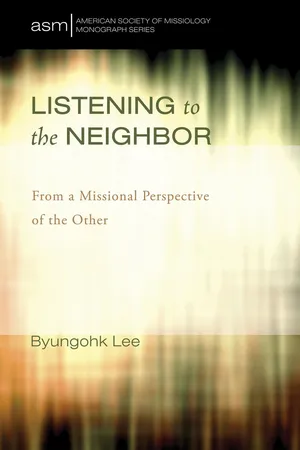![]()
1
Introduction
The theme of the PCK’s General Assembly for fall 2012–summer 2013 is “A Christian, A Friend of the Least: We Will Be a Hope Again.” It is obviously a result of the PCK’s reflection on the present-day crises of churches in Korea. Those who prepared for this one-year theme shared an agreement that most Koreans outside the church had critical and negative assessments on the Korean church. In a word, many Koreans outside the church do not regard the Korean church as their friend.
A study which was conducted in 2010 by the Christian Ethics Movement of Korea, a Christian association aiming at Christian ethical practices in Korea, said that Koreans ranked Protestantism third behind Roman Catholicism and Buddhism in terms of social credibility. The same report also pointed out that approximately 55 percent of non-Protestants did not trust in the Protestant church, while 8 percent of them did. Some scholars and leaders argue that the current crises are rooted in the church’s lack of communication with people outside the church, although there are other perspectives concerning the same issues. The Protestant churches in Korea have been accustomed to speaking the gospel to the world without listening to the world.
Koyama’s Water Buffalo Theology is concerned with contextualization of theology and mission, emphasizing the locus and people of the Asian context, including Korea. This concern is based on Koyama’s reflection that Christianity has been perceived as being western or foreign to Asians and that Christian mission has had no dialogue with local cultures and people. Koyama suggests that mission should be “neighborology” which is not monologue for treating living neighbors simply as objects, but dialogue with them. His neighbors today live in local cultural situations characterized by the interaction between traditional, cultural, and religious heritage and our technological civilization. David Bosch similarly reflects that mission has tended to be one-way, monological approach to the non-Christian world. Bosch maintains that in a newly-emerging postmodern world, mission should be a dialogue with other peoples and faiths in creative tension.
Stephen Bevans and Roger Schroeder, in Prophetic Dialogue: Reflections on Christian Mission Today, emphasize mission for the twenty-first century as prophetic dialogue. This book results from Bevans and Schroeder’s reflection on their Society of the Divine Word’s mission. They critically accept arguments of mission as both justice for the poor/oppressed in Latin America and as dialogue with other faiths in Asia in articulating mission as prophetic dialogue. Bevans and Schroeder argue that both prophecy and dialogue have worked together as two primary aspects of mission practice throughout the history of the church, with emphasis being placed on one or the other according to different contexts. Since they understand prophecy in relation to proclamation, both prophecy and dialogue are inseparable, albeit distinguishable. They hold that this understanding is essentially rooted in the Trinity. They understand the Trinity as dialogue in light of God’s Word and mission. Bevans and Schroeder contend that mission must be founded in God and be practiced in a dialogical manner, as long as the triune God is the subject of mission. In this light, Bevans states,
Thus, the Trinity is a social community speaking and listening to one another in love.
The missional church conversation, likewise, embraces the dimension of dialogue in terms of the relationship between the church and its local context or neighborhood. It has sought to understand the church’s identity related to mission within the rapidly-changing post-Christendom and postmodern world of the United States in terms of missio Dei, as we will see in more detail. Missional ecclesiology has rediscovered the church as a Spirit-led community and its local context as a mission location. The triune God, rather than the church, is at the center of mission. Regarding the gospel, it is God who speaks the Word—Jesus Christ—by the power of the Spirit to the church as well as the world. The Spirit is actively working within both the church and its local neighborhood. The church needs to listen to its larger neighboring community in order to speak, from the missional, dialogical perspective of mission. In other words, God’s mission is located in dialogue between the church and its neighborhood.
Statement of Problem
The PCK, along with other denominations, has enjoyed the unique success of explosive church growth since the introduction of Protestantism to Korea in 1884. The Korean Protestant church took it for granted that church growth was the primary indicator of the success for church mission, focusing on growing in numbers. The Korean church, separated from the world, tried to continue to expand primarily for its own survival, as we will see later. Regarding this, Craig Van Gelder points out precisely that “Survival, in itself, is not a sufficient reason for existence.”
However, the Protestant population in Korea, including the PCK’s membership, has been declining since the middle 1990s. What is worse, other religions, including Roman Catholicism, have continually grown in numbers during the same period. Korean Protestant scholars have explored the reasons for this continuing decline in recent years, trying to find various ways to reform and revive the church. Most of them have a common agreement, despite various factors and/or causes, that the Korean Protestant church has been a self-centered and gr...
